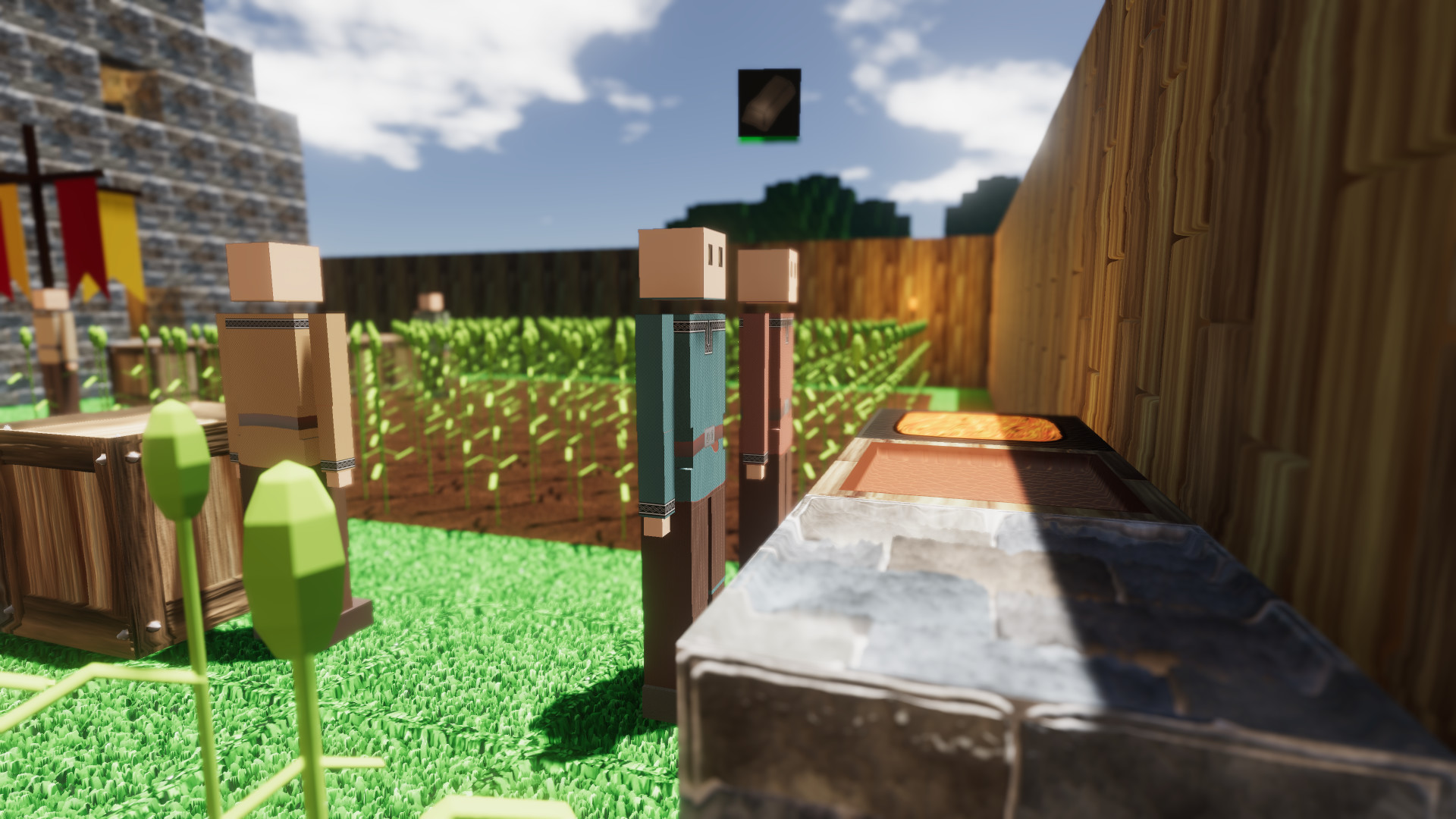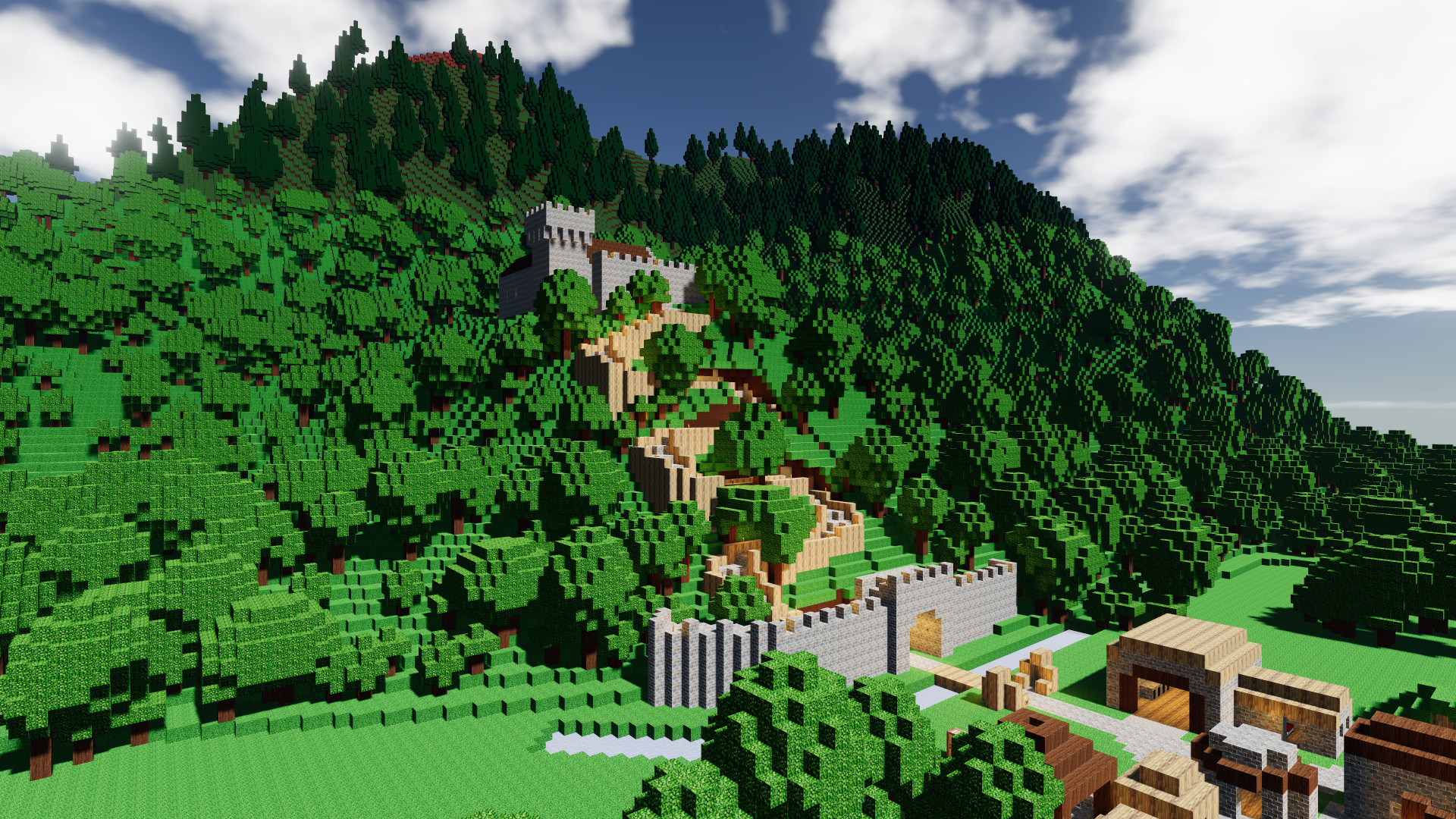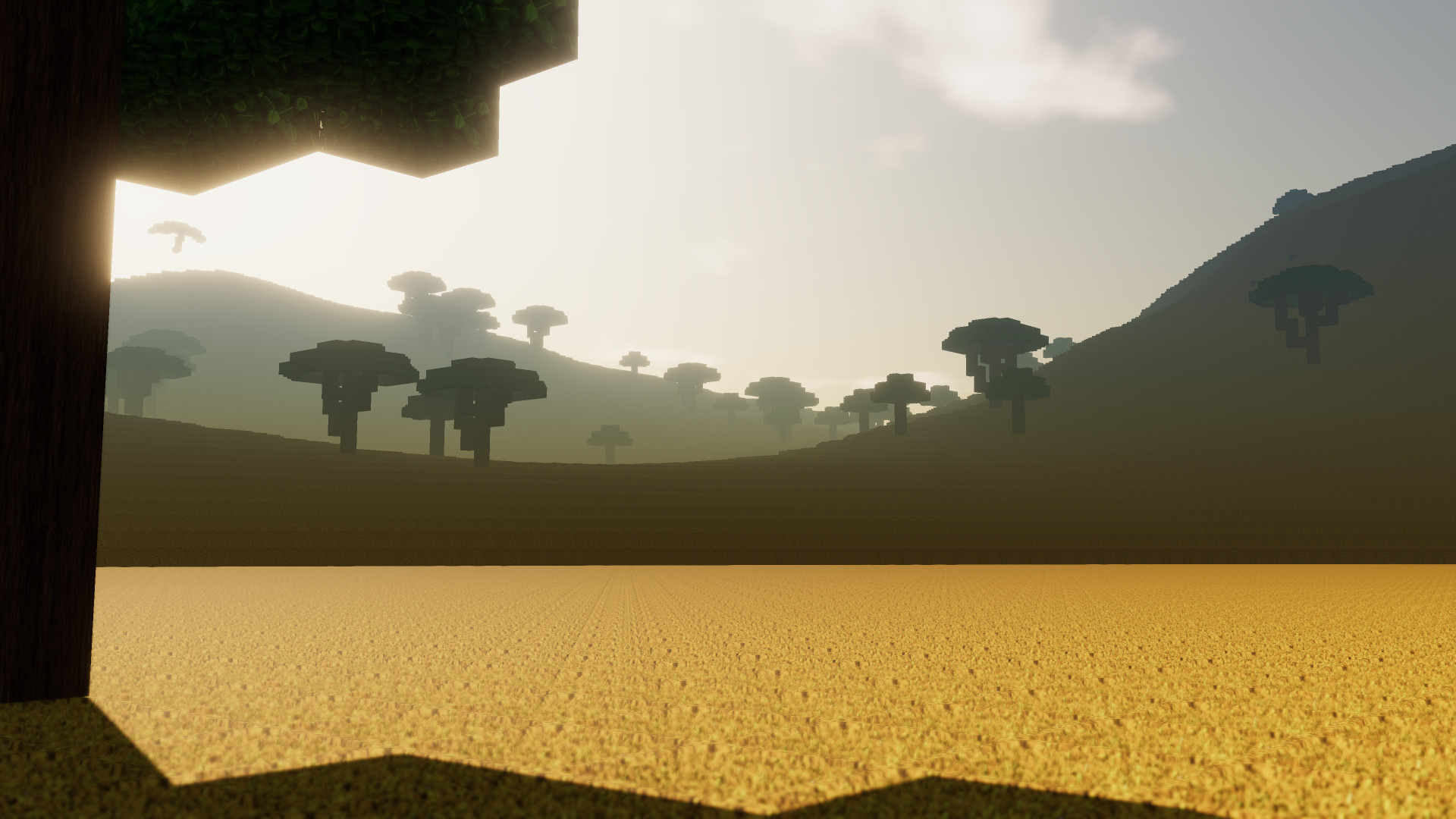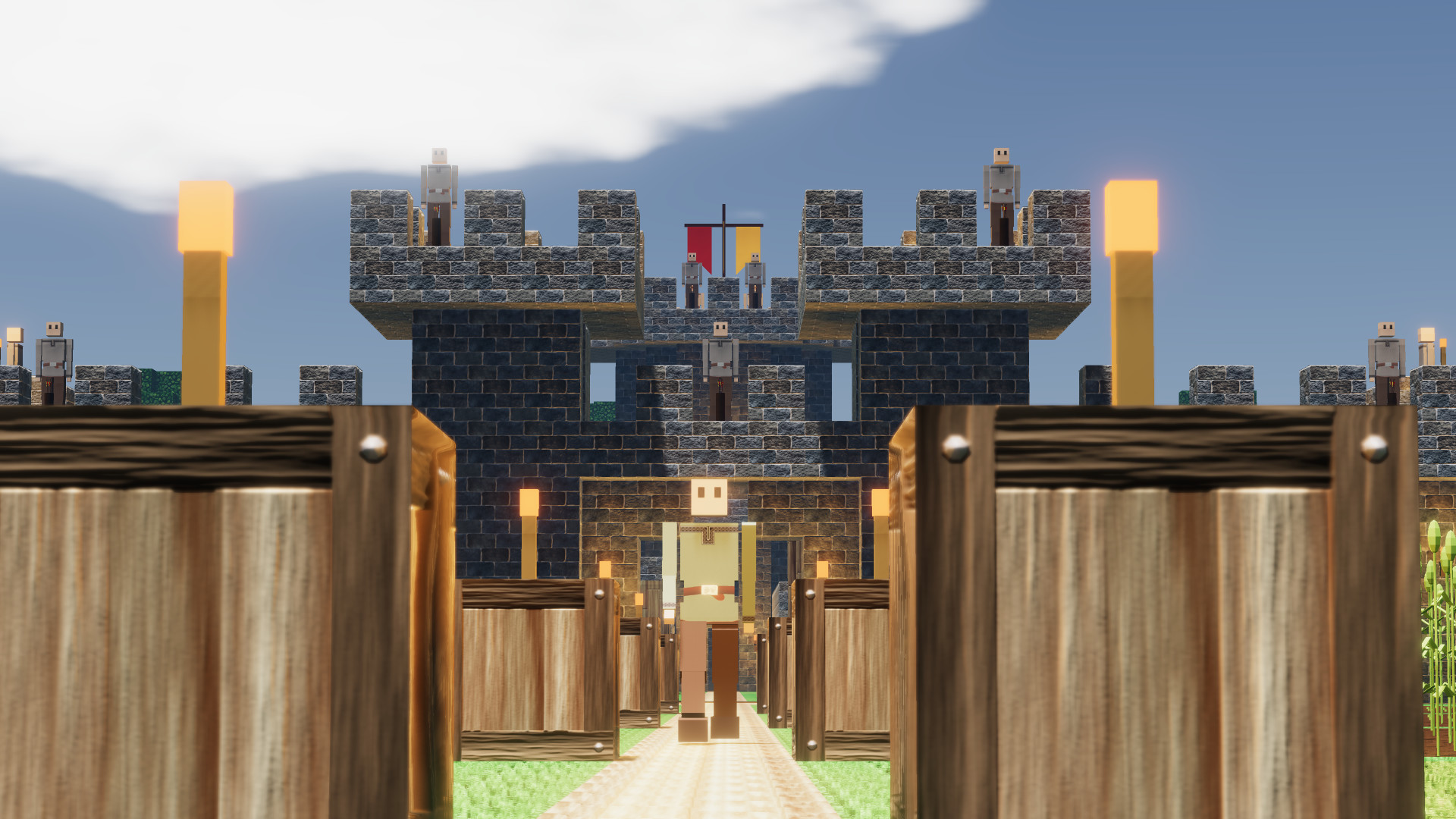- Multiplayer support: play with friends and strangers!
- Advanced pathfinding: colonists and zombies will find their way in the world you've build. They will dynamically navigate stairs, bridges and tunnels.
- Explore a world with realistically placed biomes. A giant jungle in the center of the world, surrounded by savannas, deserts and temperate biomes. Two polar regions in the far north and south.
- Support for textures and language packs created by players
- Dynamic lighting and eye adaptation
- Voice your suggestions and be part of the development of Colony Survival!
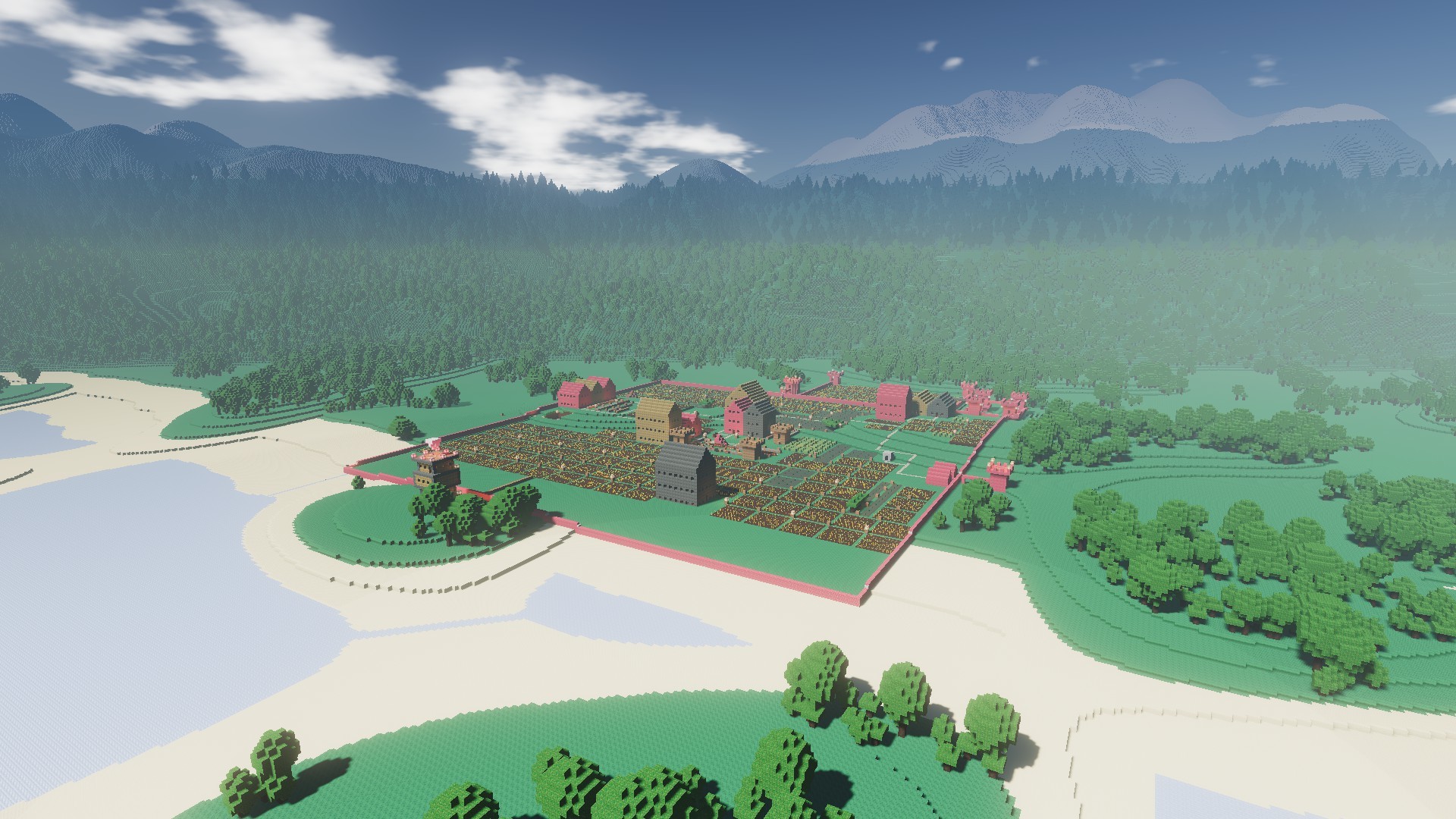
A couple of Fridays ago, we wrote about an issue with the increasing costs of keeping colonists happy. It would encourage people to start new colonies, instead of expanding their first one. Some encouragement is fine, but there should be benefits for having a big colony with lots of colonists (that consumes lots and lots of happiness items) as well.
There are actually very interesting principles behind the real life historical benefits and costs of population growth. And instead of last week's blog about geography , this is something I've actually got an academic degree in :) Avoid the history lesson by skipping to "What does this mean for Colony Survival?".
Thomas Malthus, an English scholar who lived from 1766 to 1834, wrote some very important things about population growth, which are still taken very seriously. He's basically Thanos from the last Avengers movie. He thinks the population growths exponentially. Populations don't grow with a steady +100,000 per year, they grow with a percentage, like for example 3 or 4%.
On the other hand, food production doesn't grow as quickly. It does grow (England was a lot more populated in 1800 than in AD 100), but it increases linearly. So while food production has a growth like "10 - 12 - 14 - 16", population growth goes like "4 - 8 - 16 - 32".
The problem is obvious. After a period where enough food is produced for the entire population, the population will inevitably outgrow food production. They ran into the Malthusian trap. A period of disease, starvation and war will occur. A significant amount of the population is killed off, and food production is adequate again. But without the availability of reliable birth control, the population is bound to exceed food production a couple of generations later, running into the same Malthusian trap.
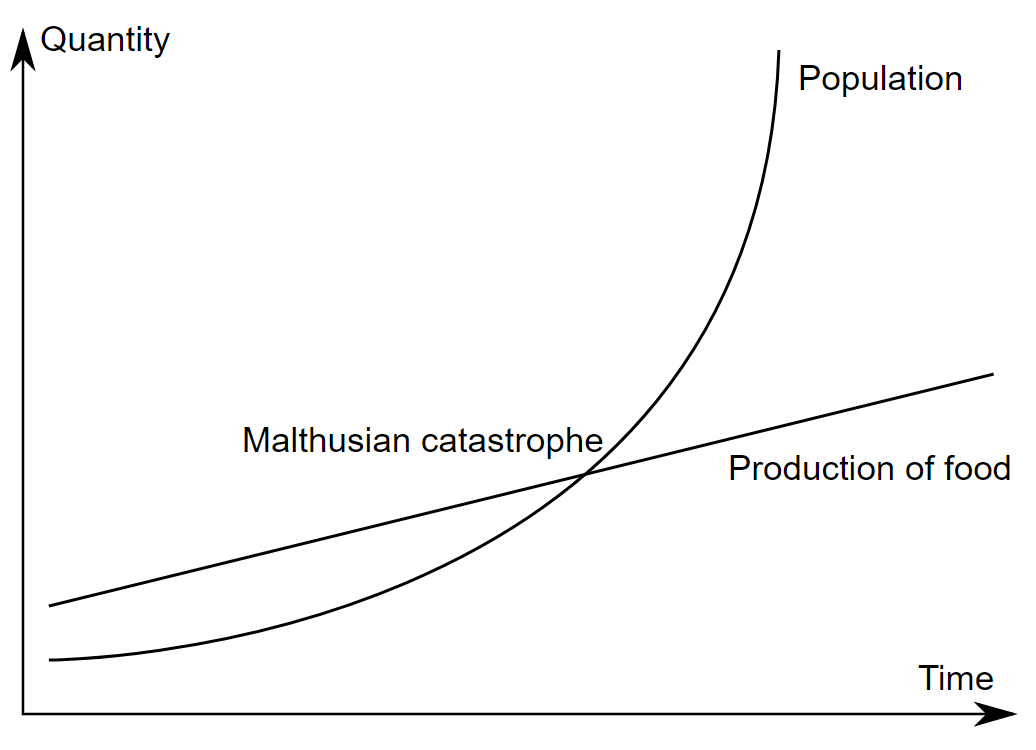
Source
The ideas of Malthus can be used in a decent amount of situations. But it also runs into some problems. Let's take a further look at his linear increase of food production.
Our civilization has increased food production in a lot of ways in the last couple of generations. Tractors, synthetic fertilizer, irrigation, genetically modified crops, etcetera. They've spread around the world like other inventions, for example televisions and smartphones.
Tractors and smartphones are obvious improvements, and a large majority of farmers/people want them. The biggest barrier is often money.
We often apply the same view to historical food production. Someone invents a better plough or improved irrigation, and this takes the world by storm, like televisions and smartphones. Barriers are things like lack of education and lack of money, but fundamentally, people want these improvements.
That's what Europeans thought when they tried to spread their advanced farming technology around the world in the last couple of centuries. But very often, natives in other continents didn't care for those improvements. The same happened with European settlers: when English and German farmers moved to South America, they often reverted to more 'primitive' forms of agriculture.
This is pretty much unexplainable with the Malthusian perspective. Methods of food production ought to increase linearly! Knowledge and availability of more advanced agricultural technology is the bottleneck of humanity!
Enter Ester Boserup, a Danish economist who lived from 1910 to 1999.
According to Boserup, agricultural improvement is mostly a lot of extra work that isn't a whole lot of fun, and thus will be avoided if possible. You're basically trying to grow more crops per square meter, which requires you to put a lot more effort into your job.
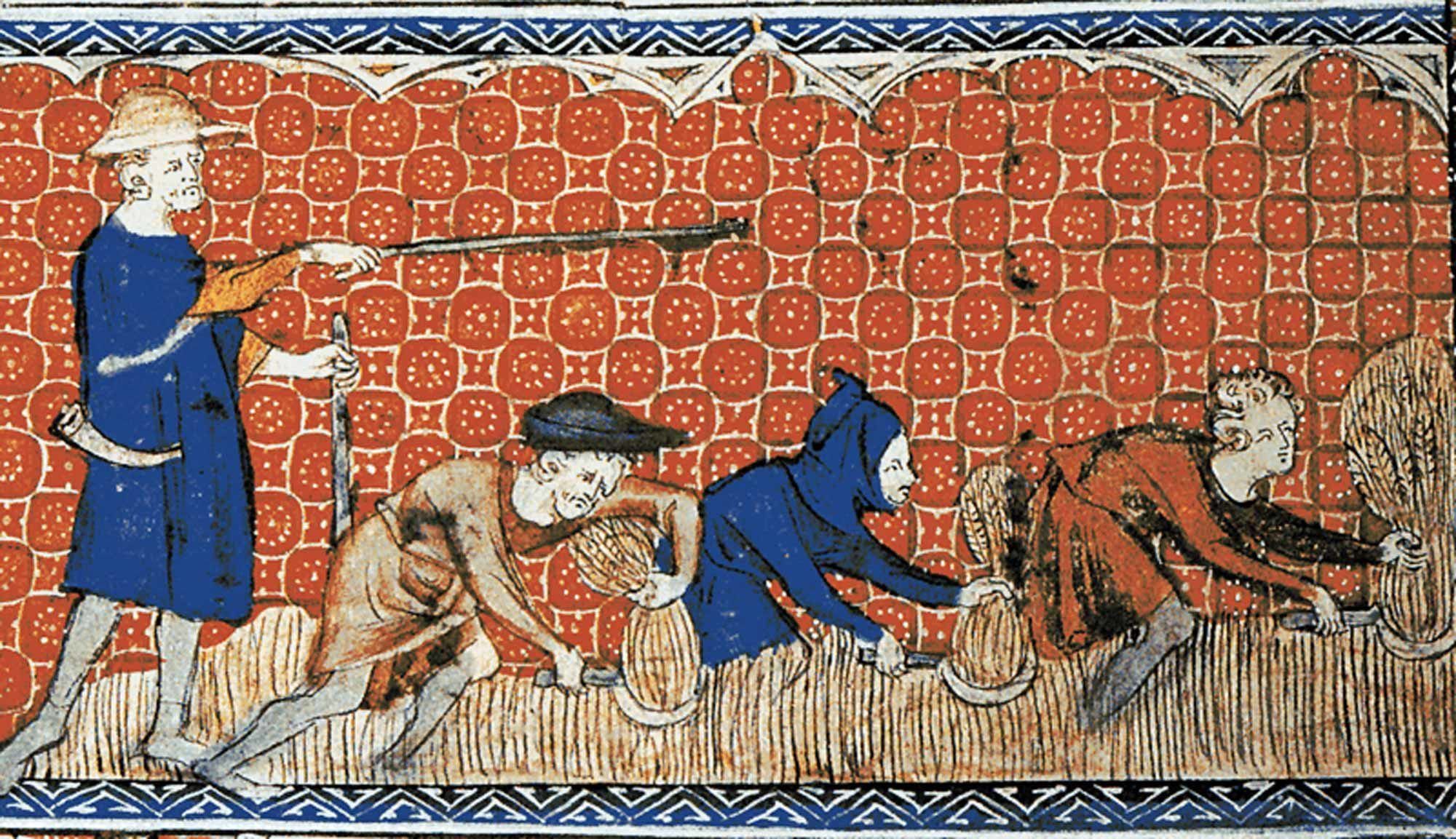
Medieval peasants, source
If you're a primitive farmer in an empty, fertile Europe in 5000BC, growing crops is easy. You burn down part of a forest, the ashes make the ground extra fertile, you throw some seeds in there, and a couple of months later you've got your harvest!
If you're a medieval peasant with a small amount of land, your job is a lot harder. You've got to plough and fertilize, you might have to irrigate, you've got to remove weeds, etcetera.
Now image the medieval peasant trying to get the primitive farmer to adopt his agricultural methods. Of course he's not going to accept that! Why do all that work, when there's enough fertile land around that you don't need to optimize your crop yield per square meter?
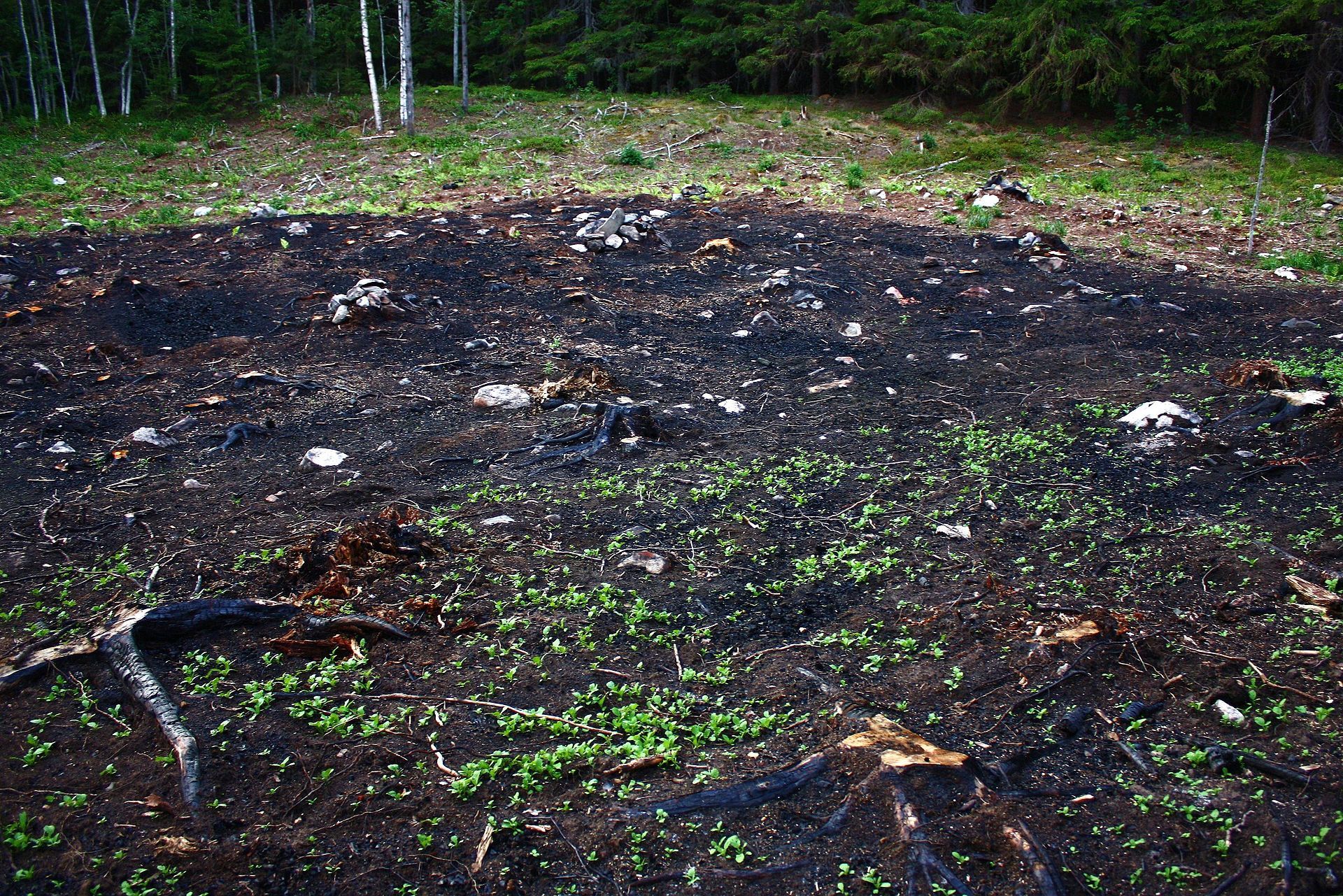
Slash-and-burn agriculture, source
So Boserup claims that most agricultural "improvements" are only adopted out of necessity, when lack of land / overpopulation forces farmers to do it. I believe this to be true.
This really hinders the development of cities. You can't start a major city in an area with only a handful of slash-and-burn farmers. You need a significant amount of dense villages where lots of food is produced before a nearby city can develop. Remember, there were no trucks, railroads or refrigerators! Everything had to be transported by humans, horses and simple carts. You can't import major amounts of food from far away places.
What does this mean for Colony Survival?
Earlier, we concluded that the increasing cost of happiness items would stimulate people to keep starting new colonies, instead of focusing on growing one colony as large as possible. New colonies are very attractive, because colonist #1 has a lot less demands than colonist #821, which will require a lot of happiness items.
We just concluded that the exact same thing happened in real pre-industrial villages and cities as well. Why live in a place where land is scarce and farming is a lot of work, when there are still places nearby where more land is available?
Big cities like London, Paris and Rome were all surrounded by hundreds of kilometers of densely populated farmland in all directions. If we're adding realistic incentives to Colony Survival, the optimal way of playing the game would result in a similar world: one relatively big colony, surrounded by lots of smaller colonies in all directions.
But imagine doing that, in singleplayer. Having to build dozens or hundreds of small, repetitive colonies before you can make progress. That's not fun. That's awful.
To prevent this realistic drudgery, we've got to introduce an unrealistic feature. We're thinking about experience points; XP. A pretty weird form of XP, that is only gained by consuming happiness items, instead of doing actual work (please add that in real life).
Instead of XP directly upgrading the related job, it's all added to one big pool per colony. You, the player, will have to decide how to use it. Upgrade your miners, or your farmers? It's your choice. But XP earned in a colony can only be spent in that colony on productivity improvements that only apply there. A new colony will have to start from scratch.
We just compared colonist #1 and #821. It doesn't mean that colonist #1 will always have little demands. When you've got 100 colonists, you'll have 100 colonists that demands a couple of happiness items. When you've got 821 colonists, you'll have 821 colonists which will all require lots of happiness items. This means that a colony with 800 colonists won't require merely 8x more happiness items compared to a colony with 100 inhabitants, but probably closer to 60x more happiness items!
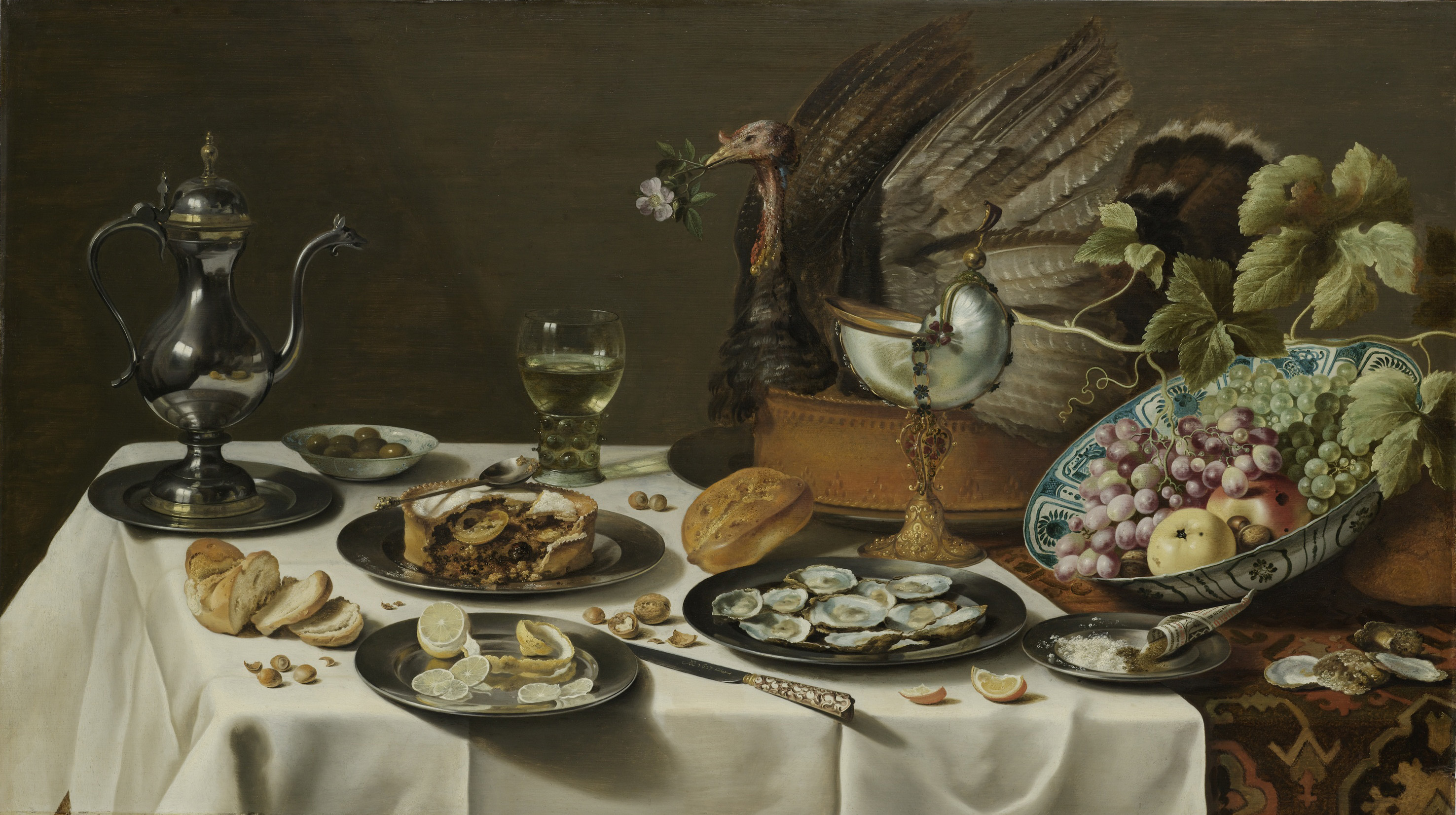
More, more, more happiness items! Source
If we tie XP to consuming happiness items, this will mean that the large colony will also receive way more XP than a smaller colony. If the XP can be invested to make jobs more productive, the motivation to start new colonies becomes a lot more balanced. Colonists in small colonies will have less demands, but they'll also be less productive. It'll still be very compelling to start colonies in different biomes with new resources, but filling the same biome with lots of repetitive colonies won't be as lucrative.
XP is one way of dealing with the quickly increasing demand for happiness items. Another way that we talked about earlier is industrial machines . We can now visualize what playing 0.7.2 (0.7.0 + a few updates) will roughly look like.
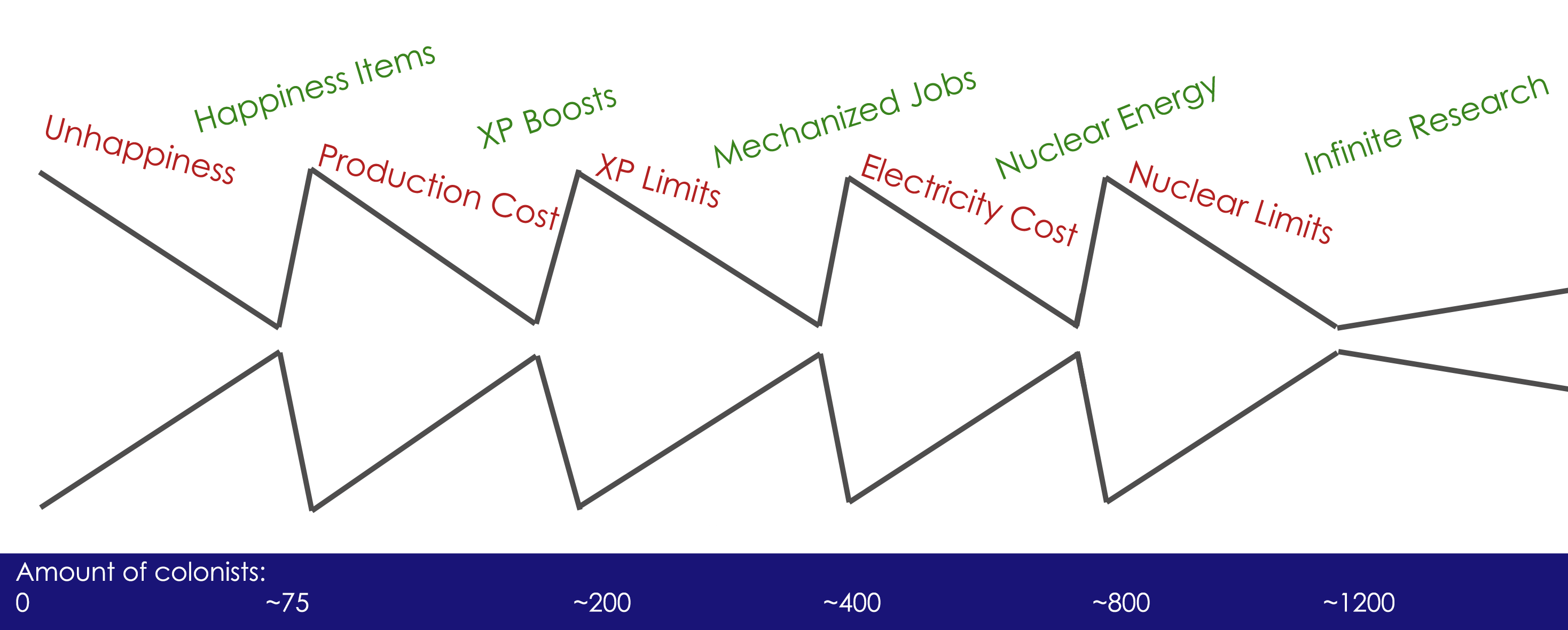
Full size
At the beginning of the game, there will be a large surplus of happiness ("presence of the King"), and it'll be easy to recruit more colonists and grow. Easier than it currently is! We've received many complaints of people who thought recruiting the first 30~50 colonists is the slowest and most boring part of the game.
Eventually, the increasing population will add unhappiness, and expanding will become more difficult and expensive. But there's a solution! Start producing and distributing happiness items, and further expansion will become possible.
At first, this will be cheap and easy. But as your population grows, they will start demanding more and more happiness items (which can also be found in other biomes). Producing them will start occupying a larger and larger part of your population, making further growth harder again.
Next solution: XP! As your colony has started consuming more happiness items, you've received more XP. Invest it to make your colonists more productive and to fuel further expansion. But the XP costs of higher levels of productivity increase exponentially, so eventually you run out of quick productivity boosts. You need something else to be able to produce enough happiness items for very large colonies.
Enter the Industrial Revolution! Invent machines that help you do just that. Spinning machines that help you turn large amounts of flax into linen for your tailors, electric furnaces that can smelt many ores simultaneously, etcetera. They will all require electricity. As you start building more machines, and invent more advanced machines, your electricity consumption quickly increases. More and more colonists will need to work at generators, and to produce the fuel they need.
Next optimization: nuclear reactors. They're a bit controversial, but we're still planning to go forward with them. They won't be very realistic, and they'll look pretty retro / steampunk. But they're a sensible way to force people to gather resources from all biomes. And they're a great solution to the problem of the increasing cost of electricity in Colony Survival.
Eventually, there will be an end to new content. There's a finite amount of happiness items and ways to optimize producing them. But we don't want to have a theoretical limit of for example #2462 colonists. Theoretically, you should be able to keep expanding. Our way of allowing this is infinite research. It'll cost a lot of energy, but when you've built nuclear reactors you'll have just that. With infinite research, you'll be able to keep optimizing your colony and to keep adding new happiness to the colony.
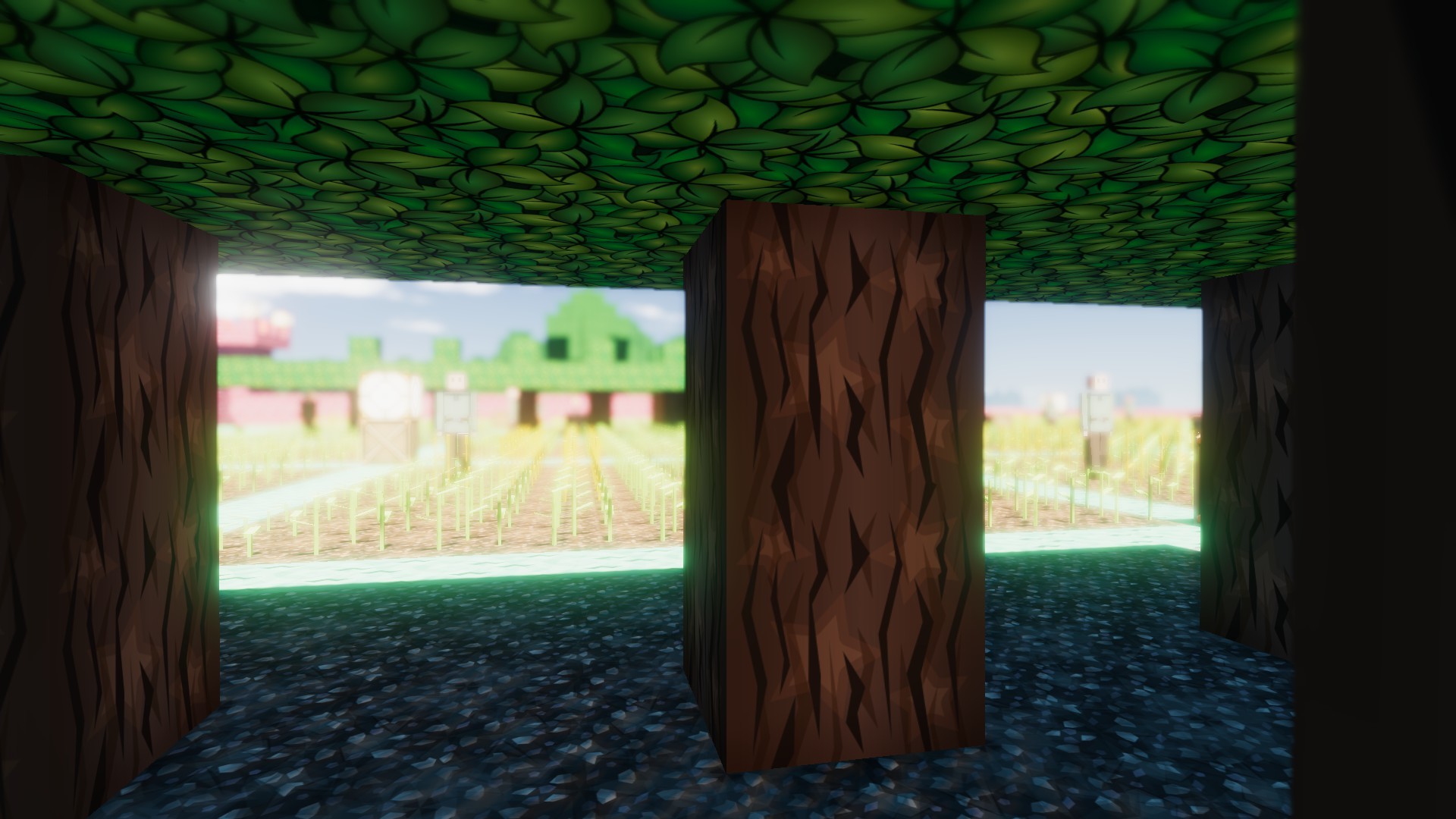
This was a long and dense Friday Blog - congratulations on reaching the end :) The graph above pretty much explains what we want 0.7 to look like eventually. We're pretty sure that electricity, nuclear reactors and infinite research will not be added in 0.7.0, but we need to make sure that all required ores are available in 0.7.0. We don't want to force you to start a new world in 0.7.1 or 0.7.2!
One caveat to the graph: the various "stages" will be a lot smoother and less obvious in-game. For example, the XP system isn't a bottleneck that has to be "solved" once: the productivity upgrades will keep coming throughout the game.
We'd love to have your feedback! Are you looking forward to it, or are you disappointed? Have you got suggestions to improve it, or do you see pitfalls that you want to warn us for? We're listening! Leave a comment here, or join our Discord and share your opinion!
Bedankt voor het lezen :)
Reddit // Twitter // YouTube // Website // Discord
Minimum Setup
- OS: Ubuntu 12.04+. SteamOS+; 64-bit
- Processor: Intel Pentium G620 (2.5 Ghz dual core) or equivalentMemory: 2 GB RAM
- Memory: 2 GB RAM
- Graphics: Intel HD Graphics 5000. 1280x720 display
- Storage: 300 MB available spaceAdditional Notes: Work in progress: new features may raise the bar. optimizations may lower the bar
Recommended Setup
- OS: Ubuntu 12.04+. SteamOS+; 64-bit
- Processor: Intel i5-2300 (2.8 GHz quad core) or equivalentMemory: 4 GB RAM
- Graphics: Nvidia GTX 750 or equivalent. 1920x1080 display. supporting openGL 4.2+Network: Broadband Internet connection
- Storage: 1 GB available spaceAdditional Notes: Work in progress: new features may raise the bar. optimizations may lower the bar
[ 6414 ]
[ 7148 ]
[ 3628 ]
[ 4850 ]



